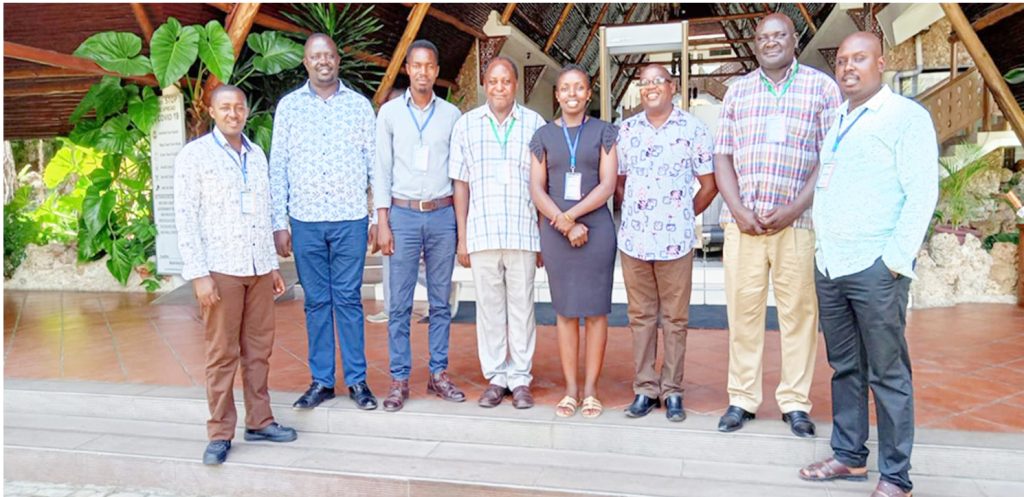A 2020 Survey conducted by the State Department for Co-operative Development revealed that there are 5,723 dormant cooperatives, which are at risk of losing its assets to unscrupulous officials.
Kenya Society of Professional Co-operators (KSPC) is now calling on government to develop policy guidelines that will help to safeguard assets of cooperatives that may fall dormant until a decision is made on their revival or liquidation.
KSPC members, who are professional cooperative practitioners, in their dispatch seen by Sacco Review, observed that Kenya has more than 27,000 registered cooperative societies and only about a quarter file their returns with the Commissioner for Cooperatives as required under Section 25(10) of the Cooperative Societies Act, 2004.
The suggestion is contained in resolutions of their meeting at Bamburi Beach Resort in Mombasa from April 18-21, 2023.
According to the sector professionals, many cooperatives are predisposed to dormancy, exposing their properties and assets to misuse and sometimes ending up as private properties of officials.
“This state of affairs discourages any efforts to revive these cooperatives or recovering assets for redistribution to members. This is a major demotivator for those who would wish to do business as cooperatives,” reads the professionals’ dispatch document in part.
A survey conducted in February 2020 by the State Department of Cooperatives revealed that there were 23,275 cooperatives by February 2018 since the date the first was registered in 1908, among them a worrying 5,723 which are dormant.
According to the survey report, Nairobi was leading in dormancy with 1,459 followed by Mombasa and Kisumu each having 425 and 417 respectively. The counties with the least number of dormant cooperatives were Garissa (12), Isiolo (13), Turkana (13), Makueni (14), and Kirinyaga (16).
The survey also showed that 8,814 cooperatives were active; Nairobi leading with 3,146 followed by Kiambu County at 507. Nakuru, Nandi and Meru had 342, 288 and 223 active cooperatives respectively.
The counties that had the least active cooperatives were Lamu (17), Samburu and Kakamega which had 21 each, Garissa (25), Siaya (27), Elgeyo Marakwet (29), and Tana River, Turkana and Wajir with 31, 35 and 40 respectively.
A total of 117 cooperatives were cancelled, majority of which were in Nairobi that had 34 and Nyeri with 30.
Other counties are Uasin Gishu and Migori (1 each), Nakuru, Nyandarua and Elgeiyo-Marakwet (2 each), and Embu (12). The rest of the counties did not have cancelled cooperatives.
The survey, the first to be conducted in the country, also revealed that another 8,621cooperatives could not be classified as either active, dormant or cancelled because they did not have requisite details such as certificate number of registration, county code, county name, and those which were registered but never commenced operations.
The members also wanted the law on nomination of successors to be strengthened in order to address conflict arising from persons who feel disinherited through the Cooperative Societies Act.
According to the professional cooperative practitioners Section 39 of the Cooperative Societies Act, 2004, cooperative members have to confidentially nominate person(s) to inherit their shares, deposits and other interests in the event of death.
They observed that the provisions of the Cooperative Societies Act 2004, in relation to the provisions of the Law of Succession (Amendment) Act, 2021, need to be re-assessed in order to strengthen and align it to ensure that the two laws are not in conflict.
The professional body also wants a review of the threshold requirement to register a workers’ cooperative society, so that the current minimum of ten workers can be reduced.

“In order to promote business, increase investments, create wealth and employment, and attract investors whether foreign or local, there is need to develop laws and regulations that promote ease of doing business and legitimise small enterprises,” they added in the dispatch.
The meeting was meant to analyze the prevailing cooperative policy and regulatory environment, notably the Sessional Paper number 4 of 2020, the Cooperative Societies Act, 2004, and the Savings and Credit Co-operatives (Sacco) societies Act 2008, among others.
They identified certain policy gaps that require the attention of both county and national governments. The professionals who convened the meeting included KSPC acting Chief Executive Officer (CEO) Symon Mburia, Peter Songok, Dr. Moses Gweyi, Denis Kirimi, Michael Mutuma, Rhoda Kemboi, Christabel Amiani, Catherine Muendi and Nicholas Riungu.
By Roy Hezron
Get more stories from our website: Sacco Review. For comments and clarifications, write to :Saccoreview@shrendpublishers.co.ke
Kindly follow us via our social media pages on Facebook: Sacco Review Newspaper for timely update


